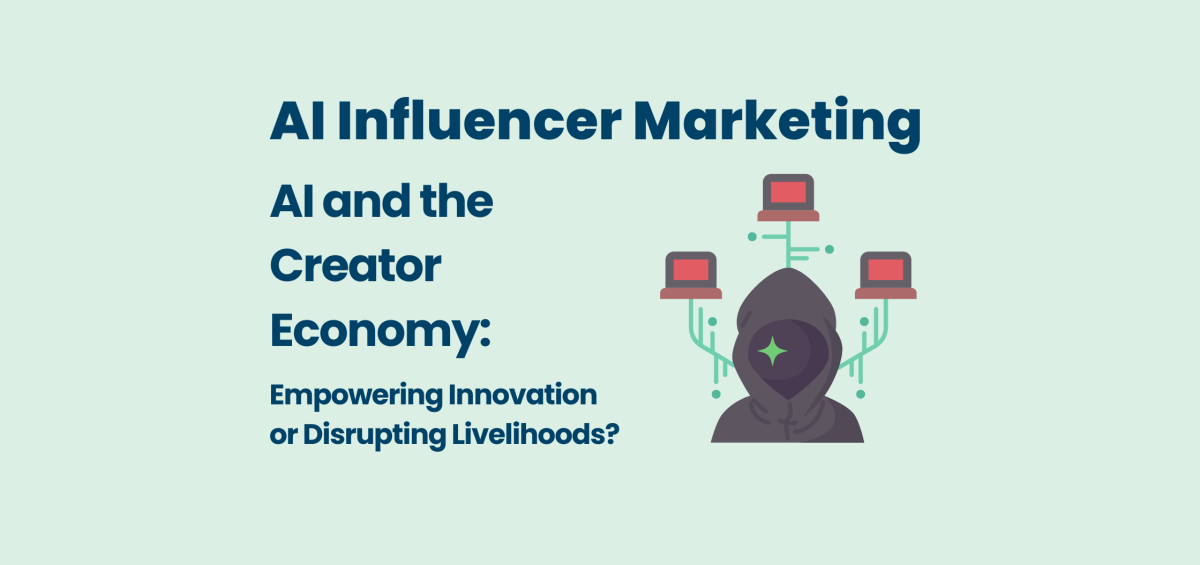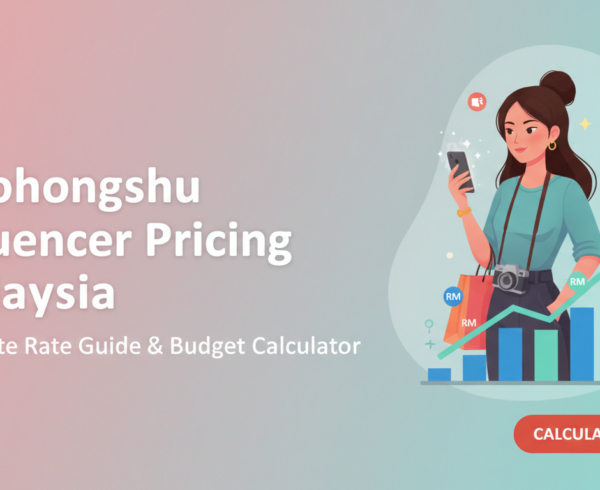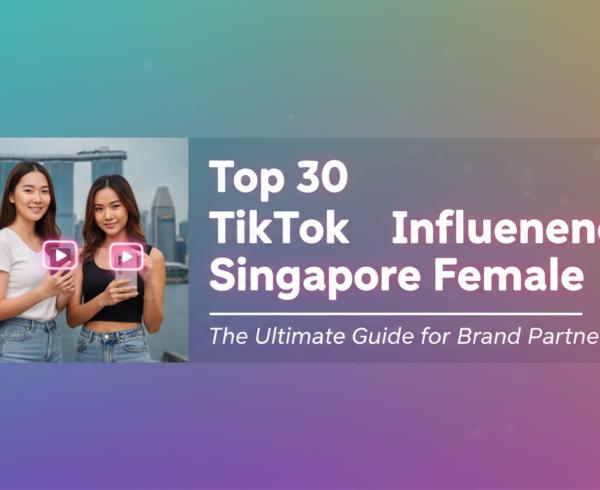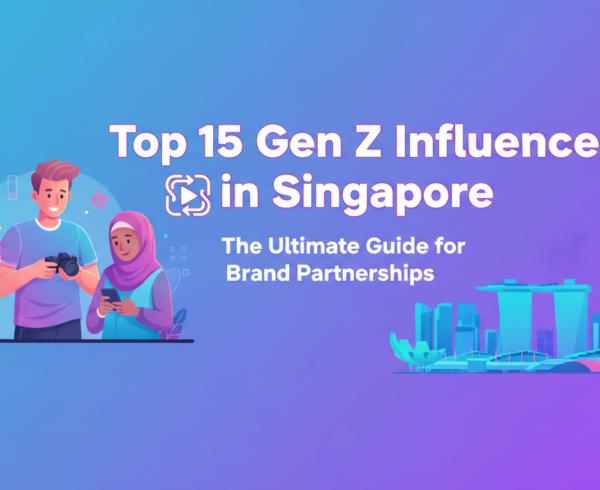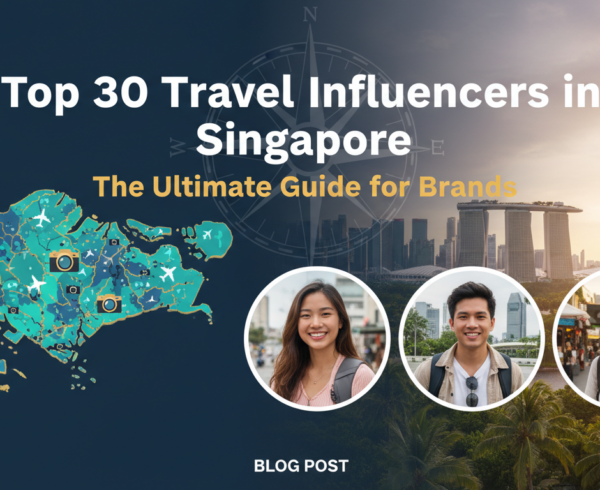Is AI the Next Big Disruptor or the Ultimate Enabler for the Creator Economy?
The creator economy has exploded in recent years, empowering individuals to monetize their passions and build thriving online businesses. Now, a new force is entering the arena: artificial intelligence. AI is poised to significantly impact how content is created, distributed, and monetized, raising crucial questions for digital marketers about the future of the creator economy and the role of both human and virtual creators. Let’s explore the multifaceted impact of AI on this dynamic landscape:
1. Democratizing Content Creation: Will AI Tools Empower a New Wave of Creators?
One of the most significant impacts of AI on the creator economy is the potential for democratization. AI-powered tools are becoming increasingly accessible and user-friendly, enabling individuals with varying levels of technical skills to create high-quality content. From AI-powered writing assistants and video editing software to music composition tools and graphic design platforms, AI is lowering the barrier to entry for aspiring creators. This could lead to an explosion of niche content and a more diverse and vibrant creator ecosystem. Digital marketers should be prepared to navigate a landscape with a potentially much larger and more varied pool of creators.
2. The Rise of the Virtual Creator: Are AI Influencers Poised to Redefine Influence?
As discussed in previous articles, AI influencers are already making waves in the marketing world. Their emergence represents a fundamental shift within the creator economy. These virtual entities, powered by sophisticated AI, are not just passive avatars; they are active content creators, engaging with audiences, and collaborating with brands. For digital marketers, this presents both opportunities and challenges. While AI influencers offer benefits like scalability and brand control, they also raise questions about authenticity and the potential impact on human creators’ livelihoods. The “State of virtual influencers 2025” report highlights the growing market size and brand partnerships of these virtual entities, indicating their increasing significance in the creator economy.
3. Enhancing Efficiency for Human Creators: Can AI Be the Ultimate Creative Assistant?
AI isn’t just about creating virtual competitors; it can also be a powerful tool to enhance the efficiency and productivity of human creators. AI-powered software can assist with time-consuming tasks such as video editing, audio transcription, social media scheduling, and even generating content ideas. By automating these processes, AI can free up human creators to focus on the more strategic and creative aspects of their work, allowing them to produce higher-quality content and engage more deeply with their audiences.
4. New Avenues for Monetization: Will AI Unlock Innovative Revenue Streams for Creators?
AI could also unlock new and innovative ways for creators to monetize their work. For example, AI-powered platforms could facilitate the creation of personalized content for individual fans, offer AI-driven recommendations for products and services, or even enable the creation of interactive experiences that generate revenue. Digital marketers should be exploring these emerging monetization models and how they can integrate them into their influencer marketing strategies.
5. The Blurring Lines of Creativity: Where Does AI End and Human Artistry Begin?
As AI becomes more sophisticated in its ability to generate creative content, the lines between AI-generated art and human artistry are becoming increasingly blurred. This raises fundamental questions about authorship, originality, and the very definition of creativity within the creator economy. Digital marketers need to be mindful of these evolving perceptions and consider the implications for brand collaborations with both human and AI creators. The Deloitte report on the creator economy touches upon the importance of human creativity even in the age of AI, suggesting a complementary relationship rather than a complete takeover.
6. The Challenge of Authenticity in an AI-Driven World:
In a creator economy increasingly influenced by AI, maintaining authenticity and trust with audiences becomes even more critical. Consumers are becoming more discerning and are likely to scrutinize content created or endorsed by virtual entities. Digital marketers need to prioritize transparency and ensure that audiences are aware when they are engaging with AI-generated content or virtual influencers, as highlighted by the research on the potential risks to brand trust associated with undisclosed AI influencers.
7. The Evolving Skillset of Creators: Adapting to the Age of AI:
The rise of AI will inevitably necessitate an evolution in the skills that creators need to thrive. Beyond traditional content creation skills, creators will need to develop expertise in leveraging AI tools, understanding AI analytics, and potentially even collaborating with virtual influencers. Digital marketers should consider how they can support creators in developing these new skills and adapt their partnership strategies accordingly.
8. Reshaping the Brand-Creator Dynamic: AI as a Facilitator and Negotiator?
AI could also play a role in reshaping the dynamics of brand-creator partnerships. AI-powered platforms could facilitate the matching process, assist with contract negotiations, and even provide objective performance evaluations. This could lead to more efficient and data-driven collaborations, potentially streamlining the entire process for both brands and creators, as suggested in the “Analyzing the Impact of AI on Influencer Marketing” paper which mentions AI’s role in creating more efficient marketing practices.
9. The Importance of Human Oversight and Ethical Considerations:
While AI offers numerous benefits to the creator economy, it’s crucial to emphasize the importance of human oversight and ethical considerations. Issues such as bias in AI algorithms, the potential for misuse of AI-generated content, and the need for clear guidelines around the use of virtual influencers need to be carefully addressed to ensure a responsible and sustainable evolution of the creator economy.
10. The Future is Collaborative: A Symbiotic Relationship Between AI and Human Creators?
Ultimately, the future of the creator economy is likely to be characterized by a collaborative relationship between AI and human creators. AI will serve as a powerful tool to enhance creativity, improve efficiency, and unlock new possibilities, while human creators will continue to bring their unique perspectives, emotional intelligence, and authentic voices to the forefront. Digital marketers who understand how to harness the power of both will be best positioned to thrive in this exciting new era of content creation and influence.
In conclusion, AI is poised to have a profound and multifaceted impact on the creator economy. For digital marketers, understanding these shifts, embracing the potential of AI tools, and strategically navigating the evolving landscape of human and virtual creators will be essential for developing effective and innovative marketing strategies in the years to come. The creator economy is entering a new era, and AI will undoubtedly be a key driving force in shaping its future.

